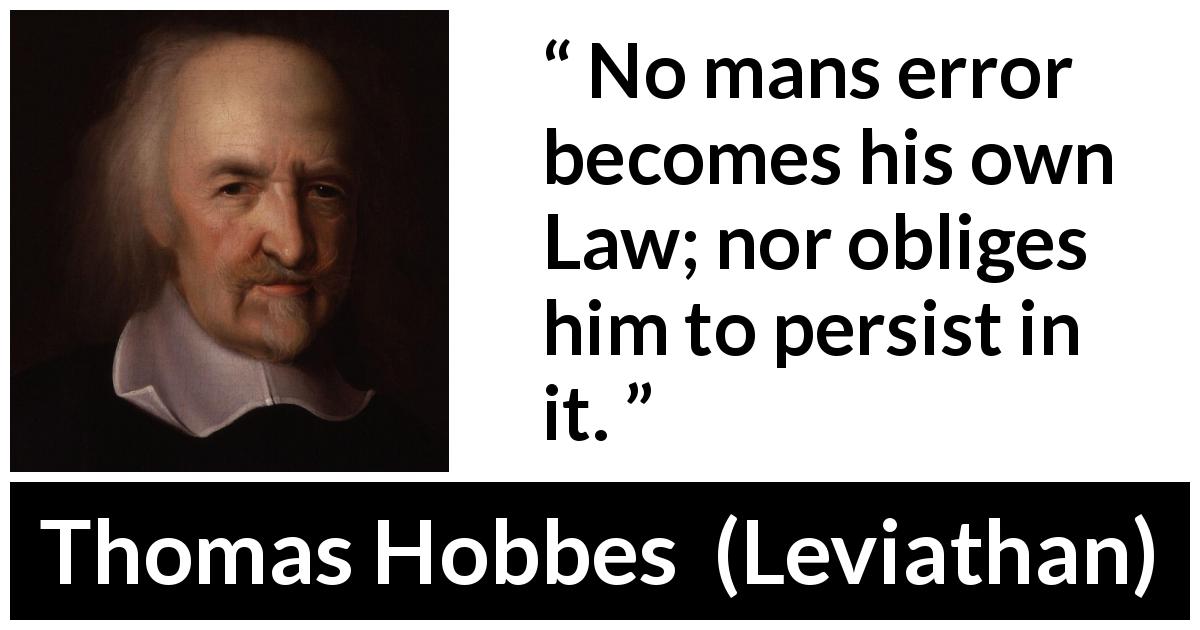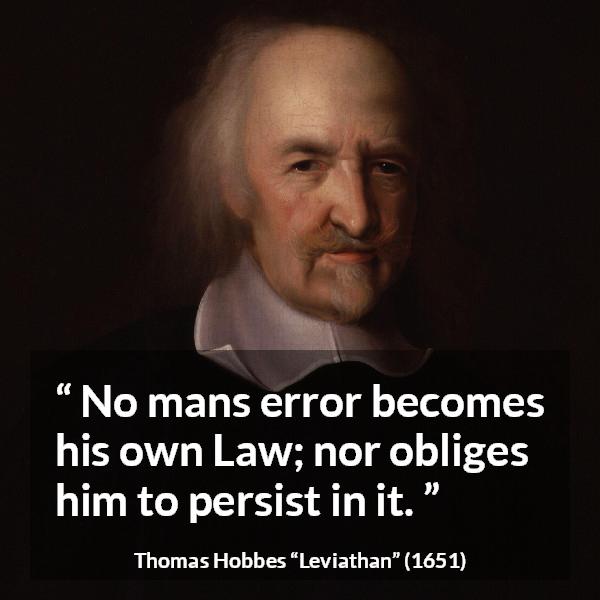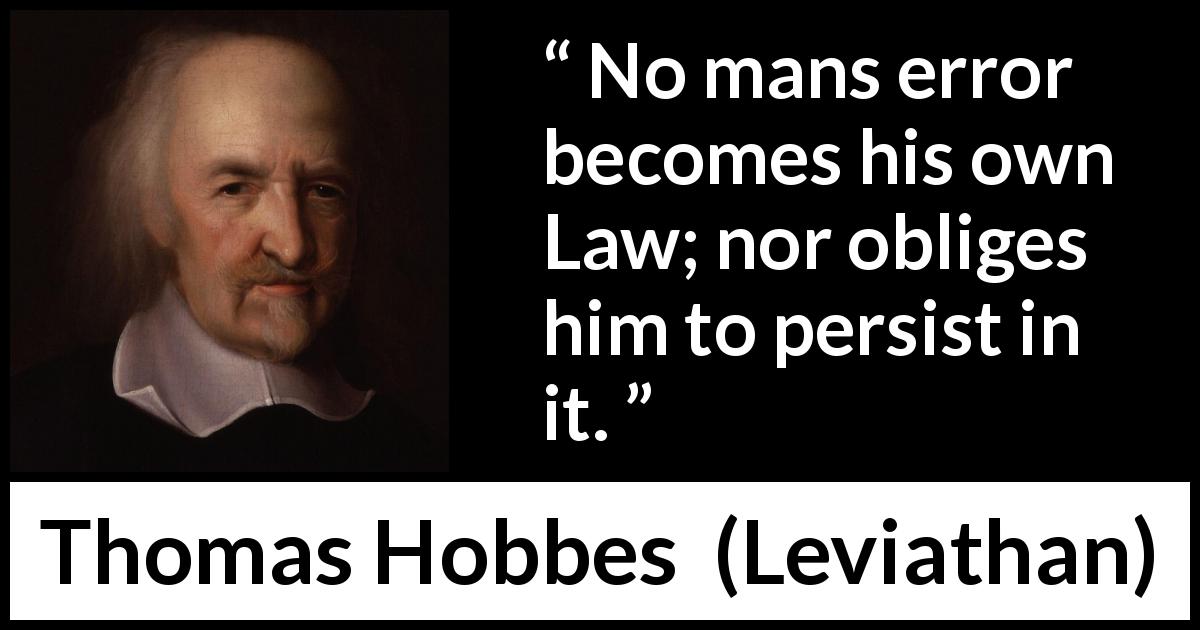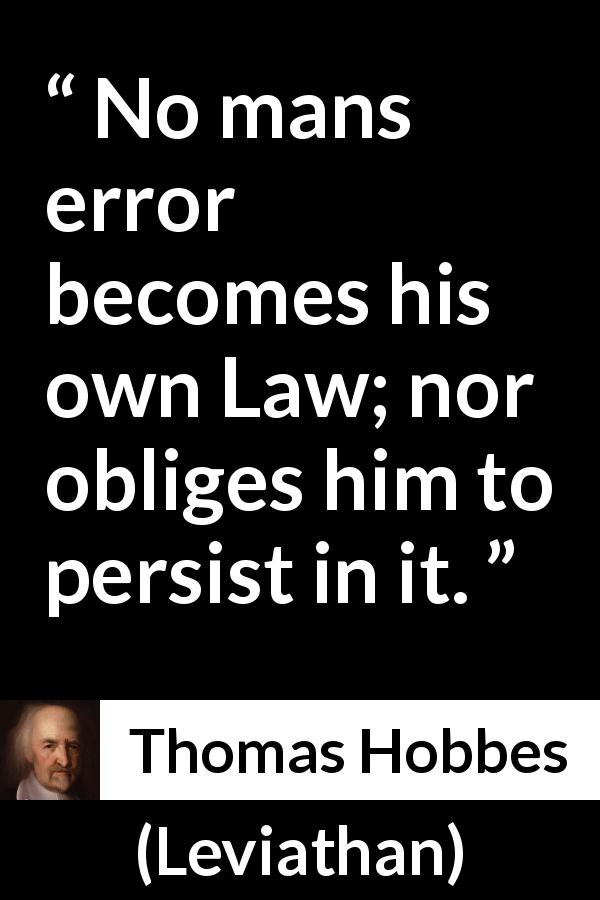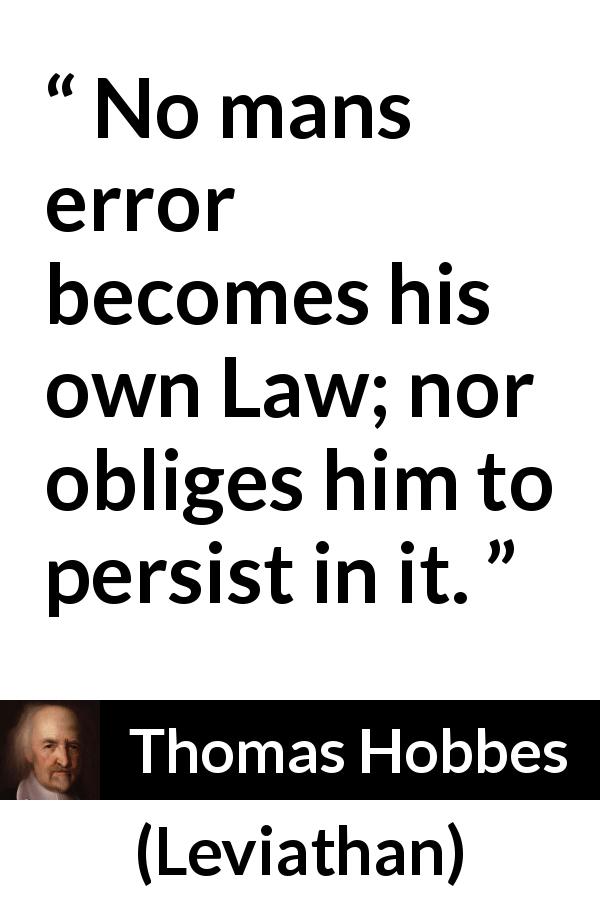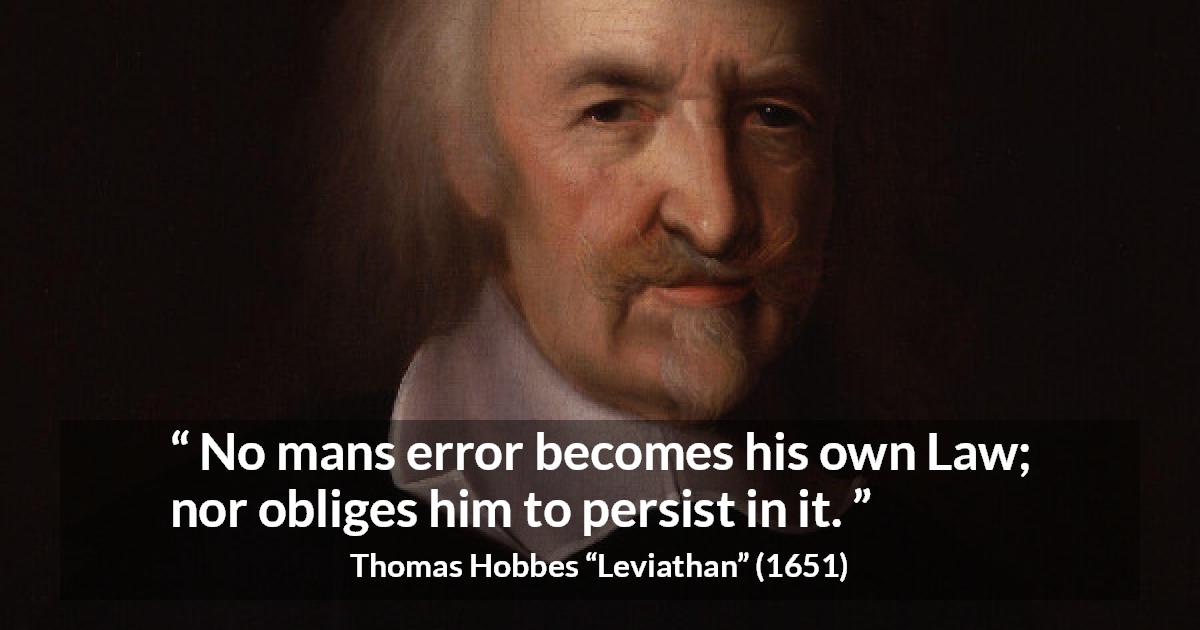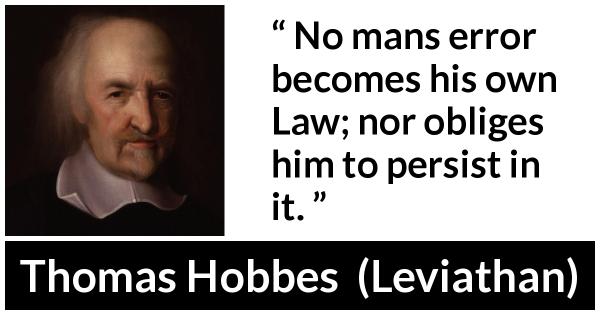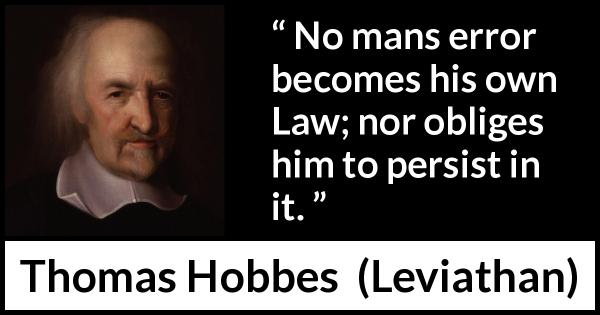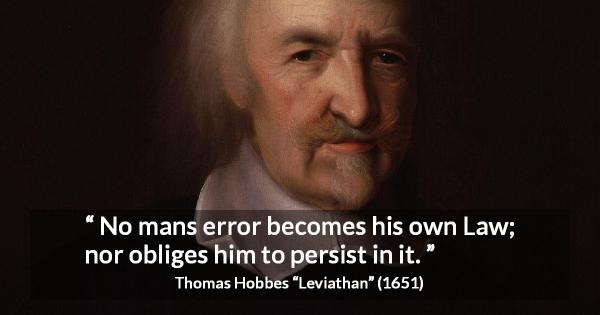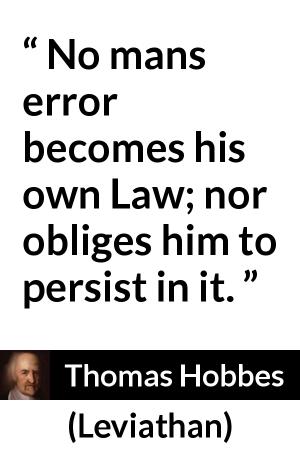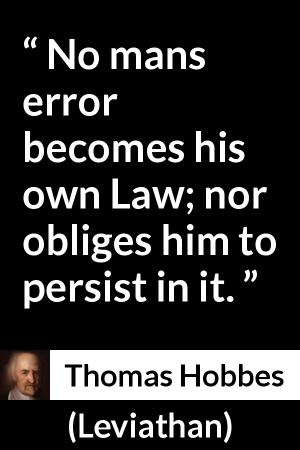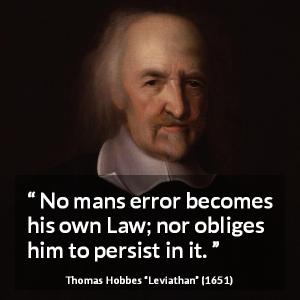“ No mans error becomes his own Law; nor obliges him to persist in it. ”
Thomas Hobbes, Leviathan (1651). copy citation
| Author | Thomas Hobbes |
|---|---|
| Source | Leviathan |
| Topic | law error persisting |
| Date | 1651 |
| Language | English |
| Reference | |
| Note | |
| Weblink | http://www.gutenberg.org/files/3207/3207-h/3207-h.htm |
Context
“But because there is no Judge Subordinate, nor Soveraign, but may erre in a Judgement of Equity; if afterward in another like case he find it more consonant to Equity to give a contrary Sentence, he is obliged to doe it. No mans error becomes his own Law; nor obliges him to persist in it. Neither (for the same reason) becomes it a Law to other Judges, though sworn to follow it. For though a wrong Sentence given by authority of the Soveraign, if he know and allow it, in such Lawes as are mutable, be a constitution of a new Law, in cases, in which every little circumstance is the same; yet in Lawes immutable, such as are the Lawes of Nature, they are no Lawes to the same, or other Judges, in the like cases for ever after.”
source
